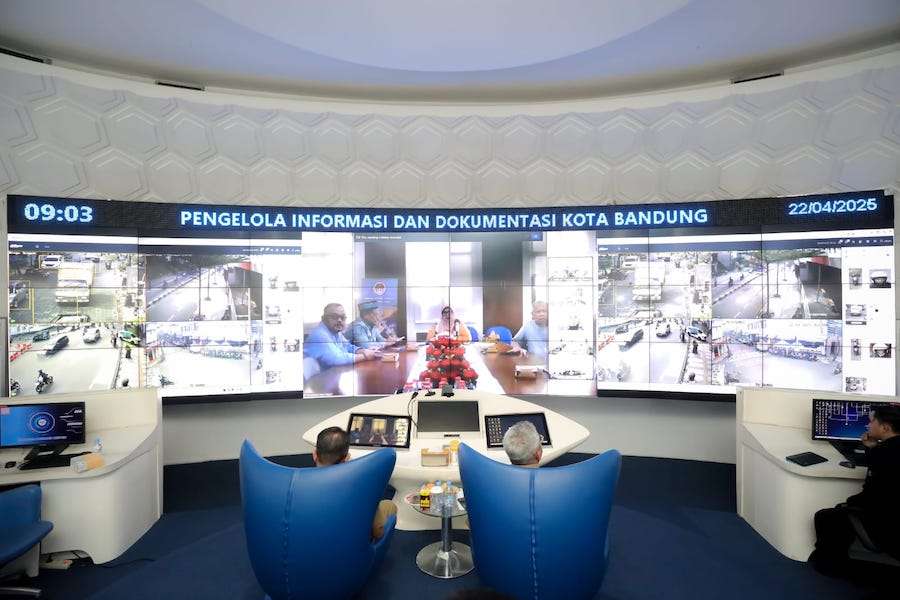
PORTALJABAR, BANDUNG CITY - The Bandung City Government (Pemkot) attended an online Coordination Meeting (Rakor) with the Corruption Eradication Commission (KPK) at the Bandung Command Center (BCC), Bandung City Hall, Tuesday (22/4/2025).
This coordination meeting was attended directly by the Mayor of Bandung, Muhammad Farhan, and focused on strategies to prevent criminal acts of corruption by strengthening regional asset governance.
This coordination meeting is part of the Monitoring Center for Prevention (MCP) agenda, the KPK's monitoring platform for regional governance.
KPK Regional Director II Bachtiar Ujang Purnama said that there were two main focuses in this Coordination Meeting, namely strengthening the achievement of MCP and managing regional assets as an instrument for increasing revenue and protecting against potential budget leaks.
"This MCP covers eight strategic areas that have been identified by the KPK. One of the areas that is the focus today is asset management," said Bachtiar.
He added that the MCP achievement in West Java is still below 78 percent. This assessment was conducted through the Integrity Assessment Survey (SPI) which resulted in two categories of regions, namely vulnerable and susceptible to corruption practices.
Bachtiar highlighted the low contribution of Regional Original Income (PAD) which is still below 18 percent of the total budget.
"Many regional heads are still too dependent on central funds through revenue sharing funds or grants and have not focused on managing PAD potential, one of which is through assets," he said.
According to him, many assets belonging to local governments have not been identified and have not been properly registered, making them vulnerable to disputes or claims by other parties.
"The value of assets in West Java is very high, but they have not been optimally utilized because they have not been certified or even inventoried," he explained.
Bachtiar said that strategic steps are needed from regional heads, regional secretaries, and inspectors to form a special team tasked with hunting down and restoring regional assets.
He asked for a re-measurement based on legal ownership, registration, and ongoing monitoring so that the assets could be used for the benefit of the community while increasing regional income.
"Certification is not only about legality, but also asset protection from disputes. If it is officially owned by the government, it can be managed, utilized, and generate income," he said.
Also present at the Coordination Meeting was Johanar from the Directorate General of Control and Order of the National Land Agency who emphasized the importance of collaboration between the three pillars in securing assets, namely the Regional Government, the National Land Agency (BPN), and village officials.
"This collaboration concept must start from mature spatial planning. After the spatial plan is prepared, then the land assets are filled and measured according to their physical and legal data. Without that, we will continue to experience overlaps and loopholes for misuse," said Johanar.
He explained that local governments can strengthen the local economy if they are able to certify and manage their assets.
"Assets that are still are just a burden. Assets must move and be productive," he said.
ATR/BPN data shows that of the total 19,721 assets owned by the Bandung City Government, 12,740 have been certified, while the remaining 6,981 have not. The certification target for 2025 is set at 750 assets.
Bandung City Government Bandung conveyed its commitment to follow up on the KPK's direction and accelerate the asset certification process that is still pending.
"This step is not only to strengthen the legality of assets, but also as a form of accountability to the community," said Bandung Mayor Muhammad Farhan.
With collaboration between the KPK, BPN, and local governments, it is hoped that West Java, including the city of Bandung, can demonstrate cleaner, more efficient governance that has a real impact on society.